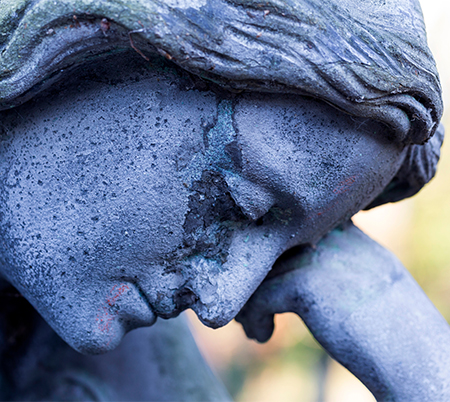 Our culture has a hard time with grief.
Our culture has a hard time with grief.
Grief is an overwhelming emotional response to loss or another type of upheaval in someone’s life. Unfortunately, in today’s society, extended grief is frowned upon. There is often a sense that grieving should occur for a minimal amount of time and then be over and done.
Our language surrounding grief is sadly telling. We talk about “moving on,” “healing,” or “putting it behind us.”
These ideas do not represent how grieving works, so receiving these messages can feel invalidating and ultimately isolating.
Grief is a personal experience, and processing it differs for each person.
Grieving is not linear.
Grief does not happen in discrete stages; depending on how your loss or losses occurred, there can be very different subjective experiences.
In other words, it can be as individual as you are and treated as such. There is not a specific timetable for processing your loss. In your grief, you may also experience anger and depression as you attempt to find your new normal.
Platitudes, one-size-fits-all approaches, and focusing on “getting better” are not helpful.
Perhaps most importantly, grieving is not a mental disorder, and using approaches designed to treat mental illness to deal with grief can be very harmful.
 You do not need fixing.
You do not need fixing.
To understand yourself now requires honoring and integrating your loss. Processing your grief benefits from working with a professional who can listen and provide support as you undertake this process.
You are not the same as you were, which is understandable and OK. As we work together, I will encourage you to explore your grief and describe your feelings. Then, we will discuss various strategies for coping with your loss as you live your life.
There is a path forward to a new normal that you can discover. Although you will be forever changed, you can also learn to integrate the loss and manage the emotions that grief causes.
Let me help you with this process as you get back on your feet.

